The Reign of the Judges
Judges 2; 4; 6–7; 13–16
LDS manual: here
Reading
You think Joshua was messed up? Welcome to Judges. Now that there’s no real leader of Israel, the violence begun by Moses and continued by Joshua just sloshes around the community at large.
Last week, we saw a quote from proto-atheist Robert Ingersoll about the book of Joshua. He continues, regarding the book of Judges:
Is there anything in Joshua—with its wars, its murders and massacres, its swords dripping with the blood of mothers and babes, its tortures, maimings and mutilations, its fraud and fury, its hatred and revenge—calculated to improve the world?
Does not every chapter shock the heart of a good man? Is it a book to be read by children?
The book of Joshua is as merciless as famine, as ferocious as the heart of a wild beast. It is a history—a justification—a sanctification of nearly every crime.
The book of Judges is about the same, nothing but war and bloodshed; the horrible story of Jael and Sisera; of Gideon and his trumpets and pitchers; of Jephtha and his daughter, whom he murdered to please Jehovah.
Here we find the story of Samson, in which a sun-god is changed to a Hebrew giant.
Now I don’t want to say any book that contains violence is bad. There’s a difference between portraying violence and approving of violence. Mormons I have known are slow to see this distinction, until it comes to Judges. Here’s a Christian saying basically this very thing:
I’d like to raise a point now that many people think that the Bible endorses everything it states. That because it’s “God’s Word,” that everything is caused and approved by God. That’s simply not so.
The book of Judges mostly describes what happened during those years. It’s not prescribing or commanding. It’s actually showing what the people did when they were left to themselves, not to worshipping and obeying God.
So anyone that brings up these chapters has to recognize this isn’t an endorsement of what’s being described.
Well, this writer hasn’t read Judges. When you do, what’s noticeable about the violence is how kosher it is. In almost all the cases, the killing was expressly commanded or motivated by the god of the Bible.
So during this lesson, we’re going to keep track of the times that the Bible says that a killing was approved of the Lord, and how many times it wasn’t.
• Kings’ thumbs and big toes cut off
1:5 And they found Adonibezek in Bezek: and they fought against him, and they slew the Canaanites and the Perizzites.
1:6 But Adonibezek fled; and they pursued after him, and caught him, and cut off his thumbs and his great toes.
1:7 And Adonibezek said, Threescore and ten kings, having their thumbs and their great toes cut off, gathered their meat under my table: as I have done, so God hath requited me. And they brought him to Jerusalem, and there he died.
Not sure if they killed the kings in addition to the phalangectomies, but this one’s approved of the Lord. ✔
Looks like God’s got a new plan though: whereas before he promised that he’d wipe out the Canaanites (a promise he couldn’t keep), now he’s decided to keep them around as a snare.
2:3 Wherefore I also said, I will not drive them out from before you; but they shall be as thorns in your sides, and their gods shall be a snare unto you.
• The manual skips one of the gorier murders in Judges:
3:14 So the children of Israel served Eglon the king of Moab eighteen years.
3:15 But when the children of Israel cried unto the LORD, the LORD raised them up a deliverer, Ehud the son of Gera, a Benjamite, a man lefthanded: and by him the children of Israel sent a present unto Eglon the king of Moab.
3:16 But Ehud made him a dagger which had two edges, of a cubit length; and he did gird it under his raiment upon his right thigh
3:17 And he brought the present unto Eglon king of Moab: and Eglon was a very fat man.
3:18 And when he had made an end to offer the present, he sent away the people that bare the present.
3:19 But he himself turned again from the quarries that were by Gilgal, and said, I have a secret errand unto thee, O king: who said, Keep silence. And all that stood by him went out from him.
3:20 And Ehud came unto him; and he was sitting in a summer parlour, which he had for himself alone. And Ehud said, I have a message from God unto thee. And he arose out of his seat.
3:21 And Ehud put forth his left hand, and took the dagger from his right thigh, and thrust it into his belly:
3:22 And the haft also went in after the blade; and the fat closed upon the blade, so that he could not draw the dagger out of his belly; and the dirt came out.
Ehud is praised as a deliverer: I think we can say this one’s approved. ✔
• We also see the start of the mass smitings of the Philistines.
3:31 And after him was Shamgar the son of Anath, which slew of the Philistines six hundred men with an ox goad: and he also delivered Israel.
Tick! ✔
• Heber’s wife Jael kills Sisera by pounding a tent stake into his skull.
4:18 And Jael went out to meet Sisera, and said unto him, Turn in, my lord, turn in to me; fear not. And when he had turned in unto her into the tent, she covered him with a mantle.
4:19 And he said unto her, Give me, I pray thee, a little water to drink; for I am thirsty. And she opened a bottle of milk, and gave him drink, and covered him.
4:20 Again he said unto her, Stand in the door of the tent, and it shall be, when any man doth come and enquire of thee, and say, Is there any man here? that thou shalt say, No.
4:21 Then Jael Heber’s wife took a nail of the tent, and took an hammer in her hand, and went softly unto him, and smote the nail into his temples, and fastened it into the ground: for he was fast asleep and weary. So he died.
4:22 And, behold, as Barak pursued Sisera, Jael came out to meet him, and said unto him, Come, and I will shew thee the man whom thou seekest. And when he came into her tent, behold, Sisera lay dead, and the nail was in his temples.
4:23 So God subdued on that day Jabin the king of Canaan before the children of Israel.
The Lord evidently approved this murder, as seen in the song of the prophetess Deborah.
5:24 Blessed above women shall Jael the wife of Heber the Kenite be, blessed shall she be above women in the tent.
5:25 He asked water, and she gave him milk; she brought forth butter in a lordly dish.
5:26 She put her hand to the nail, and her right hand to the workmen’s hammer; and with the hammer she smote Sisera, she smote off his head, when she had pierced and stricken through his temples.
It’s a hit! ✔
• Gideon and friends make a lot of noise, and the opposing forces set upon each other.
7:22 And the three hundred blew the trumpets, and the LORD set every man’s sword against his fellow, even throughout all the host: and the host fled to Bethshittah in Zererath, and to the border of Abelmeholah, unto Tabbath.
The Lord did this one himself. ✔
• The Danites slaughter the peaceful and unsuspecting people of Laish.
18:26 And the children of Dan went their way: and when Micah saw that they were too strong for him, he turned and went back unto his house.
18:27 And they took the things which Micah had made, and the priest which he had, and came unto Laish, unto a people that were at quiet and secure: and they smote them with the edge of the sword, and burnt the city with fire.
18:28 And there was no deliverer, because it was far from Zidon, and they had no business with any man; and it was in the valley that lieth by Bethrehob. And they built a city, and dwelt therein.
18:29 And they called the name of the city Dan, after the name of Dan their father, who was born unto Israel: howbeit the name of the city was Laish at the first.
While the record doesn’t say Jehovah was behind this, it wasn’t out of character for Israel. Let’s be generous and say this was off the Danites’ own bat. ✘
The Danites would eventually lend their name to a particularly frightening Mormon vigilante group, which you can read about on MormonThink.
• Finally, the gang rape and murder of a concubine. In a repeat of the Lot story, men surround a house and demand sex with a visitor.
19:22 Now as they were making their hearts merry, behold, the men of the city, certain sons of Belial, beset the house round about, and beat at the door, and spake to the master of the house, the old man, saying, Bring forth the man that came into thine house, that we may know him.
And as Lot tried to do with his daughters, the host throws them a concubine instead.
19:24 Behold, here is my daughter a maiden, and his concubine; them I will bring out now, and humble ye them, and do with them what seemeth good unto you: but unto this man do not so vile a thing.
19:25 But the men would not hearken to him: so the man took his concubine, and brought her forth unto them; and they knew her, and abused her all the night until the morning: and when the day began to spring, they let her go.
19:26 Then came the woman in the dawning of the day, and fell down at the door of the man’s house where her lord was, till it was light.
19:27 And her lord rose up in the morning, and opened the doors of the house, and went out to go his way: and, behold, the woman his concubine was fallen down at the door of the house, and her hands were upon the threshold.
19:28 And he said unto her, Up, and let us be going. But none answered. Then the man took her up upon an ass, and the man rose up, and gat him unto his place.
19:29 And when he was come into his house, he took a knife, and laid hold on his concubine, and divided her, together with her bones, into twelve pieces, and sent her into all the coasts of Israel.
19:30 And it was so, that all that saw it said, There was no such deed done nor seen from the day that the children of Israel came up out of the land of Egypt unto this day: consider of it, take advice, and speak your minds.
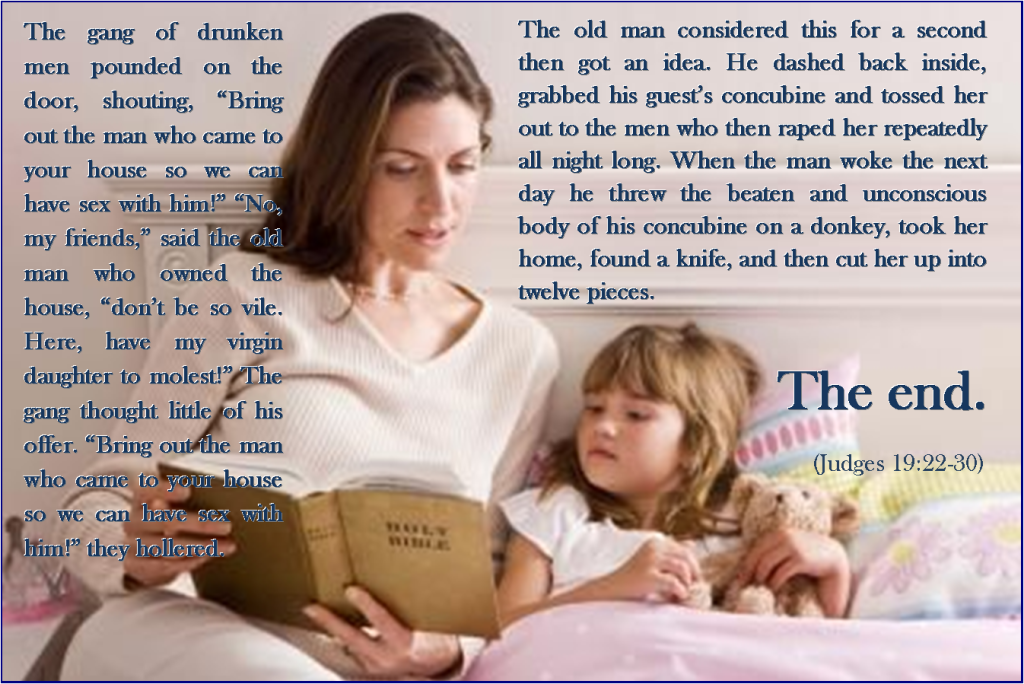
Truly a shocking story, but unlike the others, this one’s probably intended as a moral commentary and not a hero story. ✘
The real message of the Book of Judges
One of the things I notice from the real lesson manual is how Mormons take all the wrong lessons from the Bible. They make a big deal out of the Cycle of Apostasy. Wondering where Joseph Smith (or whoever) got it from when they were writing the Book of Mormon? It’s all right here in Judges. Here’s the chart you’ll see in this week’s Gospel Doctrine.
No wonder Mormons are terribly afraid of apostasy; they think it’s going to lead to bondage and warfare! They’re wrong about this, just as they’re wrong about everything else. Apostasy is awesome! It allows you to cast aside blinkered parochial notions without fear that a spirit will punish you. For once you can make your choices in life. No wonder the church can’t stand it. They need you to keep propping up the church in a ceaseless stream of activities that don’t really benefit you.
Also it’s no wonder they Mormons don’t have very good boundaries; they’re convinced that the apostasy of other people will cause bad things to happen to them, which makes it okay for them to police the behaviour of other people.
As it turns out, apostasy won’t lead to the collapse of society (Denmark and Sweden are doing fine.) It will, however, lead to the collapse of the church, and that’s why the church teaches against it. It’s the exact same reason why Jehovah commands the Israelites to destroy the religious icons of their neighbours. Remember, the primary goal of [ a god | the church | a corporation | any memeplex ] is self-perpetuation. Any entity that doesn’t do a good job of this doesn’t survive. So it’s normal for the church to act the way it does, but you must remember that it acts in its own interests, not in yours.
To my way of thinking, the so-called apostate times in Judges seem quite ideal. I don’t like war, I think having different cultural influences makes things interesting, and I’ve heard that genetic diversity is good for a population. And that’s what we’ve got here between the wars: Israel and the Caananites are living amongst each other, they’re marrying each other, and there’s a growing tolerance of each other’s religious beliefs.
3:5 And the children of Israel dwelt among the Canaanites, Hittites, and Amorites, and Perizzites, and Hivites, and Jebusites:
3:6 And they took their daughters to be their wives, and gave their daughters to their sons, and served their gods
Such a situation is potentially very positive; contact allows cultural and technological transmission, the end of tribalism lowers the risk of tribal conflict, and there’s a rise in religious pluralism. That’s really healthy! This could become a really advanced society if it could continue.
Unfortunately, it’s not what the god of the Bible has in mind. Diversity is bad for religious monocultures, which is turn is dangerous for gods, so it’s no wonder Jehovah (or Jesus) isn’t having any. He wants Israel to be an insular society, rejecting cultural advances by its neighbours and engaging in continual tribal warfare.
The Book of Judges does have a great lesson to teach humanity, but it’s not the one that it intends. Societies are always in cycles, swinging between — not apostasy and faithfulness — but fundamentalism and secularism. And just look at Judges — the times when people veer away from religious totalitarianism are the good times. That’s a cause, not an effect. Secular pluralistic societies do quite well. Then when the religious monoculture asserts itself, we get wars and strife. There’s a reason why we called the most religious time in European history “the Dark Ages”.
So my chart looks a little different, because I don’t see the process as entirely cyclical. It’s upward progress through secularism and science, interrupted by periods of religious influence.
All units approximate.
Jephthah sacrifices his daughter
For some reason, the manual doesn’t cover this chapter.
Jephthah, under inspiration, goes to kill some of those pesky Ammonites.
11:29 Then the Spirit of the LORD came upon Jephthah, and he passed over Gilead, and Manasseh, and passed over Mizpeh of Gilead, and from Mizpeh of Gilead he passed over unto the children of Ammon.
And he promises that when he gets home, he’ll sacrifice the first thing that comes out the door to meet him.
11:30 And Jephthah vowed a vow unto the LORD, and said, If thou shalt without fail deliver the children of Ammon into mine hands,
11:31 Then it shall be, that whatsoever cometh forth of the doors of my house to meet me, when I return in peace from the children of Ammon, shall surely be the LORD’s, and I will offer it up for a burnt offering.
The battle goes well.
11:32 So Jephthah passed over unto the children of Ammon to fight against them; and the LORD delivered them into his hands.
11:33 And he smote them from Aroer, even till thou come to Minnith, even twenty cities, and unto the plain of the vineyards, with a very great slaughter. Thus the children of Ammon were subdued before the children of Israel.
But who should come to greet him? His daughter. Epic facepalm.
11:34 And Jephthah came to Mizpeh unto his house, and, behold, his daughter came out to meet him with timbrels and with dances: and she was his only child; beside her he had neither son nor daughter.
But a deal’s a deal.
11:35 And it came to pass, when he saw her, that he rent his clothes, and said, Alas, my daughter! thou hast brought me very low, and thou art one of them that trouble me: for I have opened my mouth unto the LORD, and I cannot go back.
She’s game. What a little trooper.
11:36 And she said unto him, My father, if thou hast opened thy mouth unto the LORD, do to me according to that which hath proceeded out of thy mouth; forasmuch as the LORD hath taken vengeance for thee of thine enemies, even of the children of Ammon.
11:37 And she said unto her father, Let this thing be done for me: let me alone two months, that I may go up and down upon the mountains, and bewail my virginity, I and my fellows.
11:38 And he said, Go. And he sent her away for two months: and she went with her companions, and bewailed her virginity upon the mountains.
Remember that when Abraham was going to sacrifice Isaac, God put a stop to it. No such luck here.
11:39 And it came to pass at the end of two months, that she returned unto her father, who did with her according to his vow which he had vowed: and she knew no man.
You know, when I discuss genocide in the Old Testament with Christians, there’s one justification that they always come back to: The Canaanites sacrificed their children to the god Molech (so that makes it okay for Israel to have murdered them all). But the story of Jephthah shows that human sacrifice is acceptable to Jehovah. Isn’t it a bit rich for Christians to claim that genocide is okay if you’re wiping out people who sacrifice children, when here in Judges, we have a God-approved case of child sacrifice? And when in fact their entire religion is predicated upon human sacrifice?
Ask: Is this story meant to show how awful it was, in the context of Israel’s apostasy?
Answer: No, verse 29 shows that the Spirit of the LORD was on him when he made that vow, and Jehovah must have known in advance what would happen. Notice also that Jephthah makes his vow, and then Jehovah (or Jesus) delivers the Ammonites into his hands. This is a bargain made and accepted. ✔
Ask: Did Jephthah suffer any negative social consequences as a result of killing his daughter? Did he become a pariah to his group?
Answer: No way; in the next chapter, his friends are dead keen to go kill some more Ammonites! They’re so mad they missed the last slaughter, they’re gonna burn his house down!
12:1 And the men of Ephraim gathered themselves together, and went northward, and said unto Jephthah, Wherefore passedst thou over to fight against the children of Ammon, and didst not call us to go with thee? we will burn thine house upon thee with fire.
And Jephthah’s like: No, guys, c’mon, let’s go get some more. With friends like these, right?
There’s a hand at the back. Yes, Brother Hickenlooper?
Brother H: Did later revelation clarify Jephthah’s actions?
Yes, indeedy. The apostle Paul specifically mentions Jephthah as someone who did great deeds because of his faith.
Hebrews 11:32 And what shall I more say? for the time would fail me to tell of Gideon, and of Barak, and of Samson, and of Jephthah; of David also, and Samuel, and of the prophets:
11:33 Who through faith subdued kingdoms, wrought righteousness, obtained promises, stopped the mouths of lions.
11:34 Quenched the violence of fire, escaped the edge of the sword, out of weakness were made strong, waxed valiant in fight, turned to flight the armies of the aliens.
Matt Dillahunty of the Atheist Experience referenced Jephthah in particular when vaporising this Christian caller John. Both parts worth watching.
Part 1:
Matt: Have you not read the story of Jephthah, who offers to sacrifice the first thing that comes out of his house to God, if God would let him win this battle? God supposedly does let him win the battle, knowing in advance that it would be his daughter, therefore God endorses human sacrifice— did you not read that part of the Bible?
John: Uh — no.
Matt: Then how can you tell me that the Bible is an accurate representation of God?
…
John: Did they go through with the sacrifice?
Matt: Yes!
John: Okay, so then at that point, if God allowed that sacrifice to go through, if he allowed that individual to sacrifice that other individual, then there was a bigger purpose and a bigger plan for that.
Matt: Okay, I’m glad you said that, ’cause now we’re done. And here’s why. You just said that if that’s what happened, — and it is; you can go read your Bible; I’m sorry you don’t know it as well as we do, but it’s there — that to me tells me is that if there is a god, and this is an accurate representation of his standard, then mine is superior. I don’t care what his standard is; I don’t care that I don’t live up to it, because he supports slavery. He supports child sacrifice. He rewards belief over deeds. He doesn’t care a whit what your life is like. He cares what you believe. He endows salvation — depending on what your soteriological claims are — based on faith or grace or anything else, yes, deeds come along afterward. But the tenet of Christianity, at least for most believers, is that you can live a good, decent life and still fry in hell.
Part 2:
Samson
Samson is everyone’s favourite murderous lunkhead. How could you not love a guy who evades capture by carrying off the gates of a city? What he lacks in brains, he makes up for in raw bull-headed determination.
Samson was the son of yet another barren woman, the type that were so common in those times.
13:2 And there was a certain man of Zorah, of the family of the Danites, whose name was Manoah; and his wife was barren, and bare not.
13:3 And the angel of the LORD appeared unto the woman, and said unto her, Behold now, thou art barren, and bearest not: but thou shalt conceive, and bear a son.
13:24 And the woman bare a son, and called his name Samson: and the child grew, and the LORD blessed him.
Samson’s not a bright boy, but he knows what he wants.
14:1 And Samson went down to Timnath, and saw a woman in Timnath of the daughters of the Philistines.
14:2 And he came up, and told his father and his mother, and said, I have seen a woman in Timnath of the daughters of the Philistines: now therefore get her for me to wife.
Nice going, Samson. You’ve just made the list of Top 10 biblical ways to acquire a wife. The rest are right here on pages 14–15 of this Sunstone issue.
The thing that strikes me about Samson is not his strength as such, but his murderous rampages, and the equanimity with which the townsfolk accept them as part of life.
• He kills 30 men to pay off a debt when his friends trick him in the riddle contest.
14:19 And the Spirit of the LORD came upon him, and he went down to Ashkelon, and slew thirty men of them, and took their spoil, and gave change of garments unto them which expounded the riddle. And his anger was kindled, and he went up to his father’s house.
Ask: What do you think of as ‘the feelings of the Spirit’?
Answer: Love, joy, peace, and according to Judges, the desire to smite the ever-living tar out of a bunch of dudes. ✔
• He causes ‘a great slaughter’ when the Philistines burn his wife and father-in-law to death over the Foxtails Incident.
15:4 And Samson went and caught three hundred foxes, and took firebrands, and turned tail to tail, and put a firebrand in the midst between two tails.
15:5 And when he had set the brands on fire, he let them go into the standing corn of the Philistines, and burnt up both the shocks, and also the standing corn, with the vineyards and olives.
15:6 Then the Philistines said, Who hath done this? And they answered, Samson, the son in law of the Timnite, because he had taken his wife, and given her to his companion. And the Philistines came up, and burnt her and her father with fire.
15:7 And Samson said unto them, Though ye have done this, yet will I be avenged of you, and after that I will cease.
15:8 And he smote them hip and thigh with a great slaughter: and he went down and dwelt in the top of the rock Etam.
We can only assume God’s okay with this — he doesn’t revoke Samson’s powers. ✔
• He kills a thousand men with the jawbone of an ass.
15:11 Then three thousand men of Judah went to the top of the rock Etam, and said to Samson, Knowest thou not that the Philistines are rulers over us? what is this that thou hast done unto us? And he said unto them, As they did unto me, so have I done unto them.
15:12 And they said unto him, We are come down to bind thee, that we may deliver thee into the hand of the Philistines. And Samson said unto them, Swear unto me, that ye will not fall upon me yourselves.
15:13 And they spake unto him, saying, No; but we will bind thee fast, and deliver thee into their hand: but surely we will not kill thee. And they bound him with two new cords, and brought him up from the rock.
15:14 And when he came unto Lehi, the Philistines shouted against him: and the Spirit of the LORD came mightily upon him, and the cords that were upon his arms became as flax that was burnt with fire, and his bands loosed from off his hands.
15:15 And he found a new jawbone of an ass, and put forth his hand, and took it, and slew a thousand men therewith.
Approved of the Lord. ✔
• Then he takes a break and goes to see a prostitute. God’s unfazed by this; Samson’s strength is uncurtailed.
16:1 Then went Samson to Gaza, and saw there an harlot, and went in unto her.
• No, what causes his strength to fail is a simple haircut. By Delilah’s treachery, he is blinded and mocked. But Jehovah gives him the strength to kill just one… more… time!
16:27 Now the house was full of men and women; and all the lords of the Philistines were there; and there were upon the roof about three thousand men and women, that beheld while Samson made sport.
16:28 And Samson called unto the LORD, and said, O Lord God, remember me, I pray thee, and strengthen me, I pray thee, only this once, O God, that I may be at once avenged of the Philistines for my two eyes.
16:29 And Samson took hold of the two middle pillars upon which the house stood, and on which it was borne up, of the one with his right hand, and of the other with his left.
16:30 And Samson said, Let me die with the Philistines. And he bowed himself with all his might; and the house fell upon the lords, and upon all the people that were therein. So the dead which he slew at his death were more than they which he slew in his life.
And tick. ✔
There are a number of problems with the story of Samson.
First, God’s moral commands seem especially arbitrary here. He punishes Samson not for murdering over a thousand people, nor for having sex outside of marriage — that’s all okay. No, what really tears the deal for God is Samson getting a haircut that he didn’t even want. How does that square with divine justice?
But the other problem is: why does God have different deals for different people?
One of the things about Mormon doctrine is that the same requirements apply to everyone. Fair’s fair. You’re gay? No sex before marriage, just like straight people. You lived and died before Jesus? Well, you have to get baptised just like everybody else. God’s no respecter of persons.
But what the story of Samson shows is that God is a respecter of persons. If you’re a Nazarite, you follow a different set of rules to everyone else. So how does that fit into the system? Is Samson not supposed to cut his hair because cutting one’s hair is morally wrong? That would be weird. So why is this the thing that undoes Samson?
(This takes us into the territory of Euthyphro’s Dilemma, which we’ll discuss in a future lesson.)
Is it all about the kind of deal you make with God? If so, is it possible to hold out for a better deal? Do you just have to invent a sect, and God will respect it? This seems distinctly post-modern to me, like the new age friend who once implored me not to be an atheist, because if I thought there’d be nothing after death, that’s what would happen to me! Having God honour the deal you make with him would be terrific, if you could write your own deal. If it’s a custom-made deal that God handed down to the Nazarites, then not so much.
Additional ideas for teaching
Gods can take care of themselves.
Ask: What would you think of someone who committed an act of religiously motivated vandalism?
Such was Gideon, one of the heroes of Judges.
6:28 And when the men of the city arose early in the morning, behold, the altar of Baal was cast down, and the grove was cut down that was by it, and the second bullock was offered upon the altar that was built.
6:29 And they said one to another, Who hath done this thing? And when they enquired and asked, they said, Gideon the son of Joash hath done this thing.
The men of the city go to Gideon’s father Joash, who says something quite sensible: Why does your god need protection? If he’s such a hotshot, let him do his own dirty work.
6:30 Then the men of the city said unto Joash, Bring out thy son, that he may die: because he hath cast down the altar of Baal, and because he hath cut down the grove that was by it.
6:31 And Joash said unto all that stood against him, Will ye plead for Baal? will ye save him? he that will plead for him, let him be put to death whilst it is yet morning: if he be a god, let him plead for himself, because one hath cast down his altar.
Ironic, coming from an Israelite, but a good point nonetheless.
The Abrahamic god must be truly powerless to need a small army of apologists, legislators, missionaries, and defenders to make his case for him.
Shibboleth
A shibboleth is often a word or phrase that identifies someone as a member of a group. The word comes to us from Judges 12. It seems that child-killer Jephthah took his friends the Gileadites to battle against the Ephraimites. The Gileadites won, and cut off the Ephraimites’ route of escape. The problem then became: how to tell the Gileadites from the Ephraimites when everyone was leaving the site of battle? The solution was linguistic: The Gileadite dialect used a /ʃ/ sound, as in shin; the Ephraimite dialect didn’t. So they got everyone to say the word shibboleth, which meant ‘ear of grain‘, and if they couldn’t say the /ʃ/, that marked them as an Ephraimite. They killed 42,000 people that day.
12:5 And the Gileadites took the passages of Jordan before the Ephraimites: and it was so, that when those Ephraimites which were escaped said, Let me go over; that the men of Gilead said unto him, Art thou an Ephraimite? If he said, Nay;
12:6 Then said they unto him, Say now Shibboleth: and he said Sibboleth: for he could not frame to pronounce it right. Then they took him, and slew him at the passages of Jordan: and there fell at that time of the Ephraimites forty and two thousand.
The takeaway here: A knowledge of phonology could save your life.
God can’t beat iron chariots
1:19 And the LORD was with Judah; and he drave out the inhabitants of the mountain; but could not drive out the inhabitants of the valley, because they had chariots of iron.
Shoot, what’s an almighty deity to do?
Iron Chariots is also the name of a wonderful counter-apologetics site. Worth a look!
And the murder tally is:
God: From the above, I get 46,704 dead people, plus an entire army of Midianites and an unspecified Samsonian ‘great slaughter’ of Philistines. (That’s not counting the 300 foxes.) All commanded, inspired, or actually performed by the god of the Bible.
Man: One concubine, plus the City of Laish. I think I was being generous there.
Activity for Gospel Doctrine attenders: If the instructor tries to pull the old ‘reporting is not approval’ trick, just show them the stats. Don’t let them get away with it. The violence in Judges is mostly god-approved, and in fact the whole setup is Jehovah’s doing for deciding to keep the Canaanites around, contrary to his earlier promise in Joshua. The cycle of violence between Israel and its neighbours — and all its attendant misery — is worth it to Jehovah (or Jesus), so that Israel will remember him.
Thanks for playing, and we’ll see you next week.



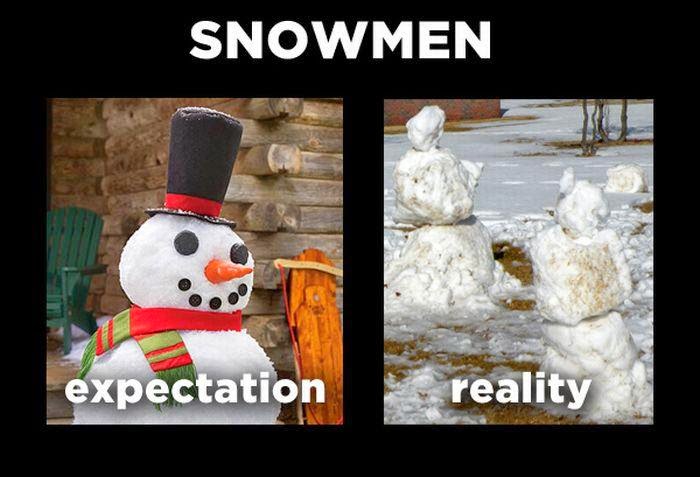
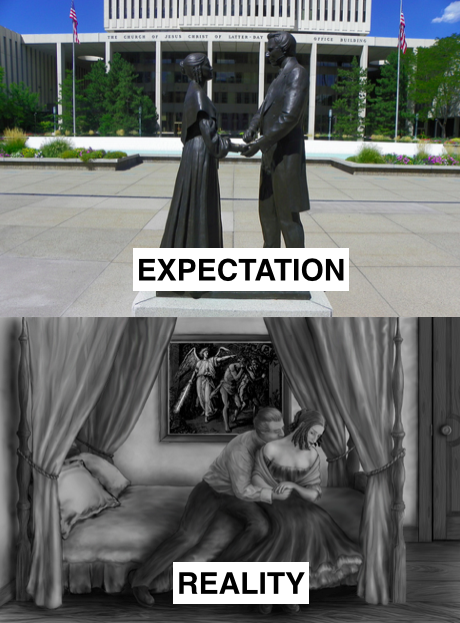
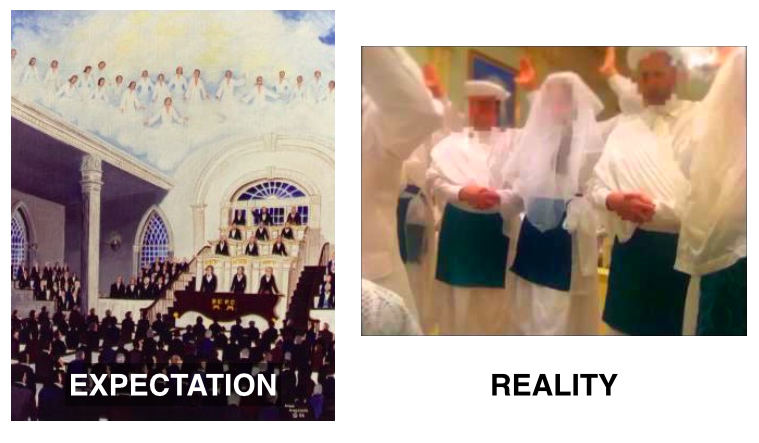
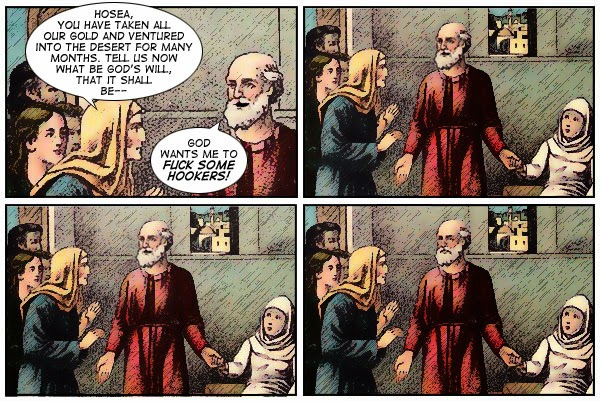
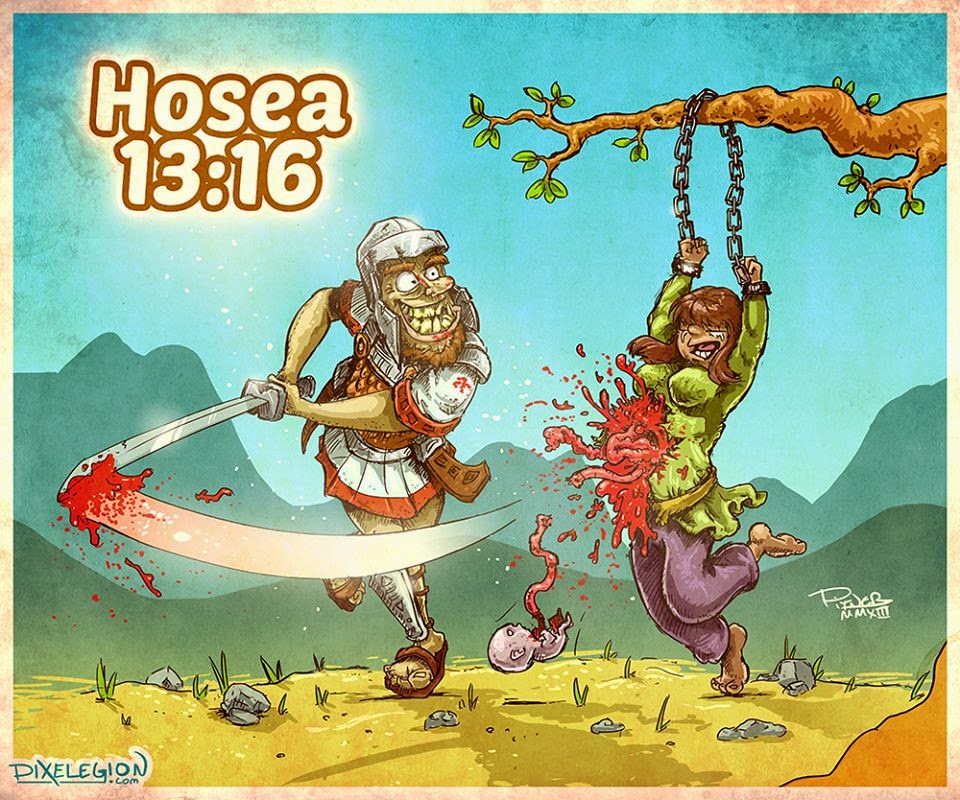
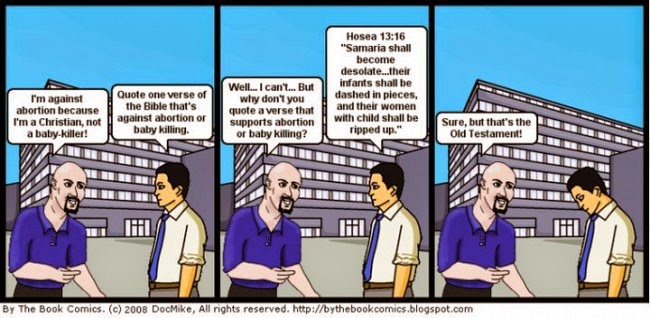


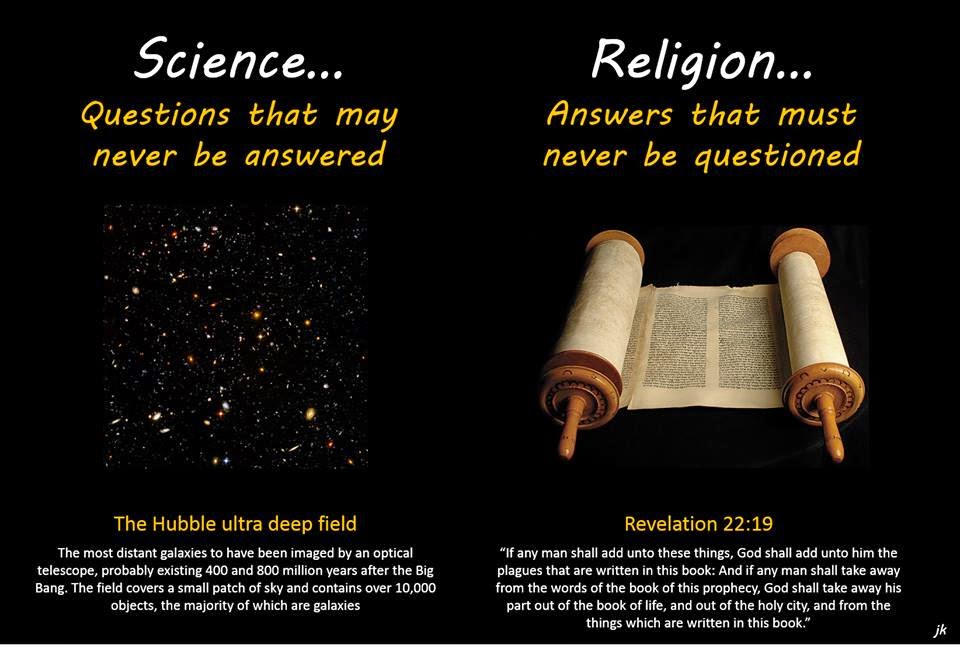





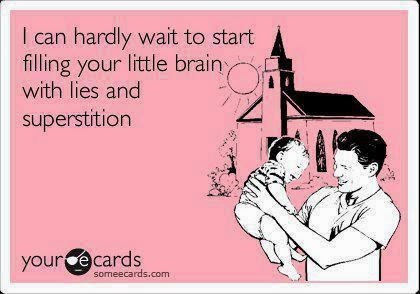
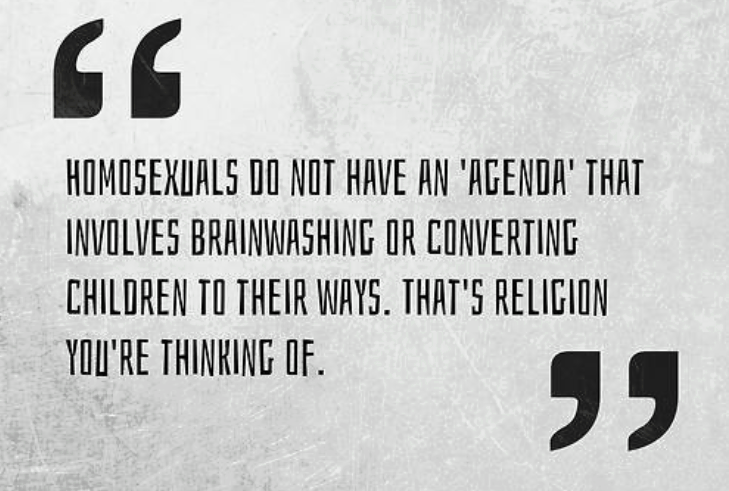




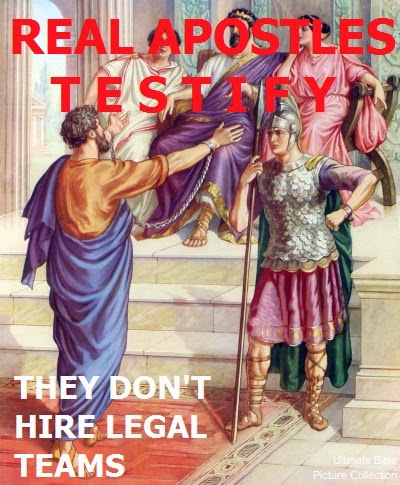


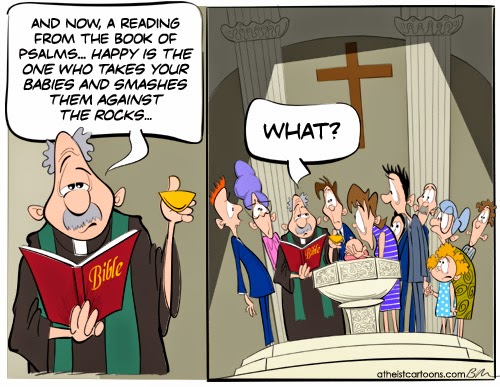
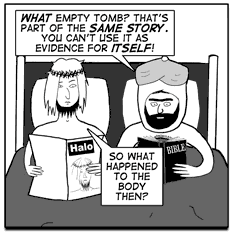






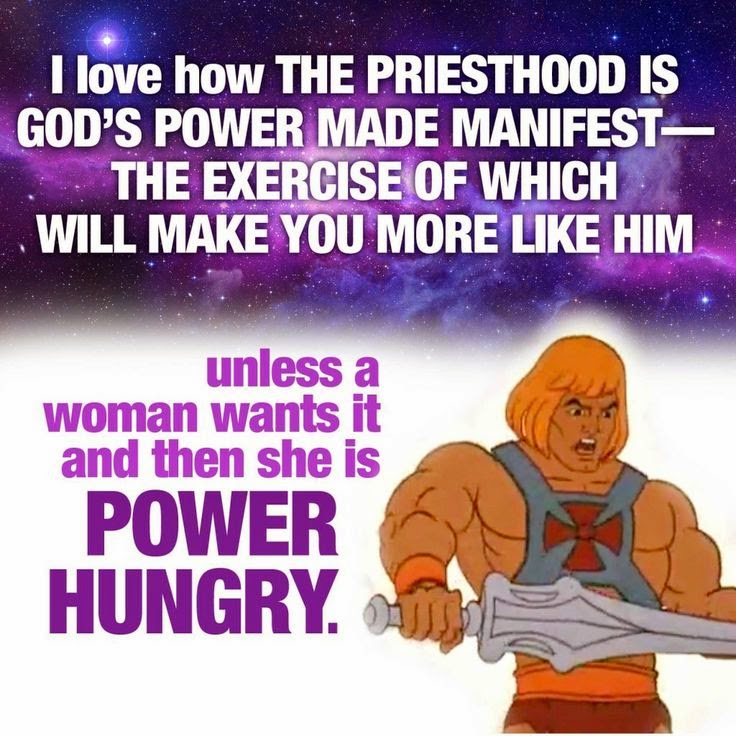




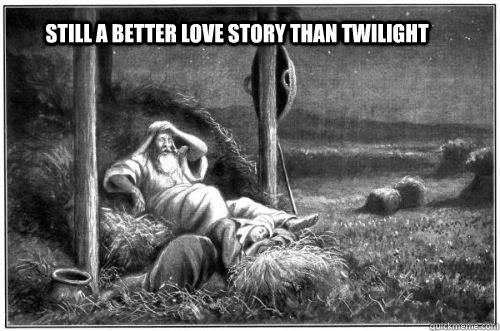

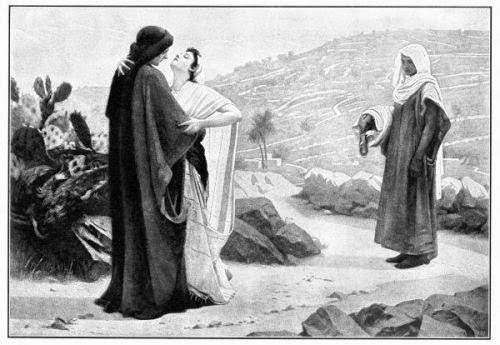
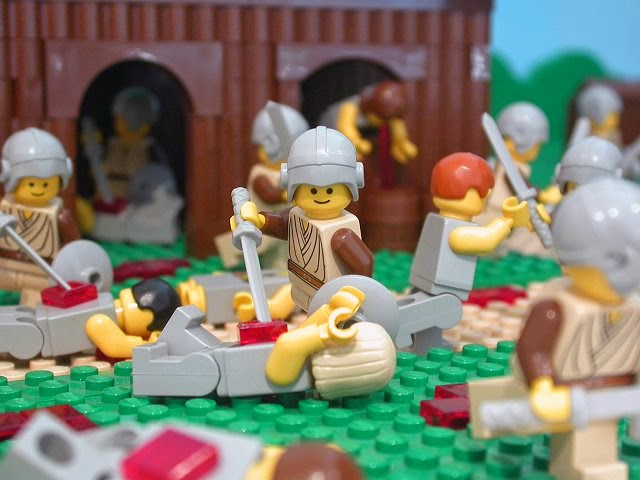



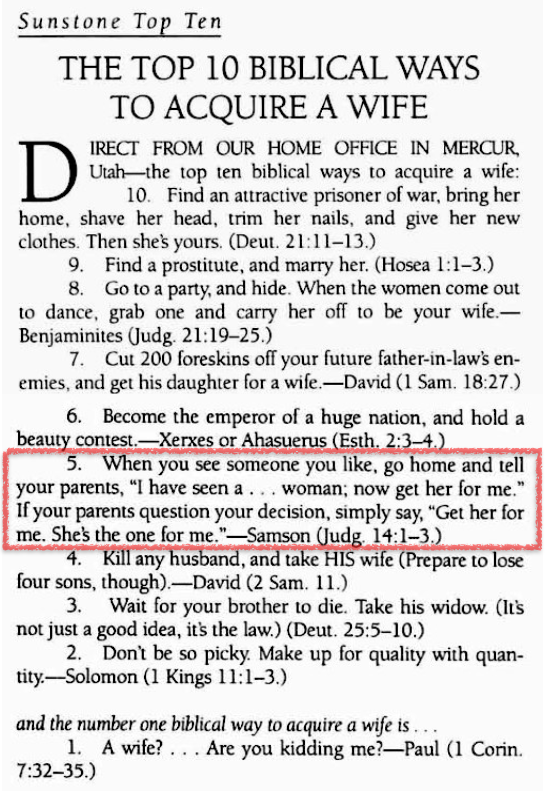
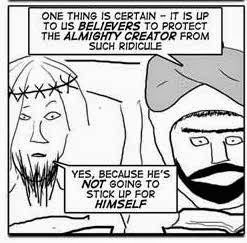
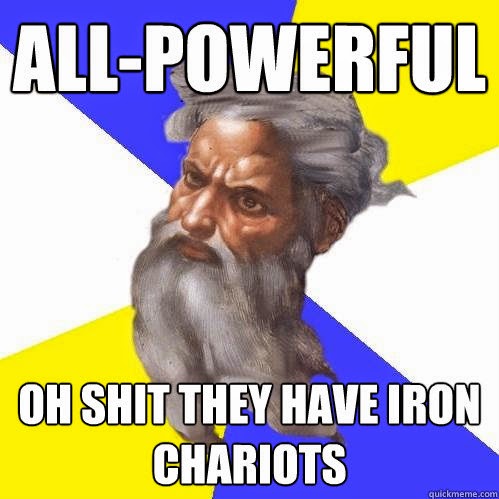
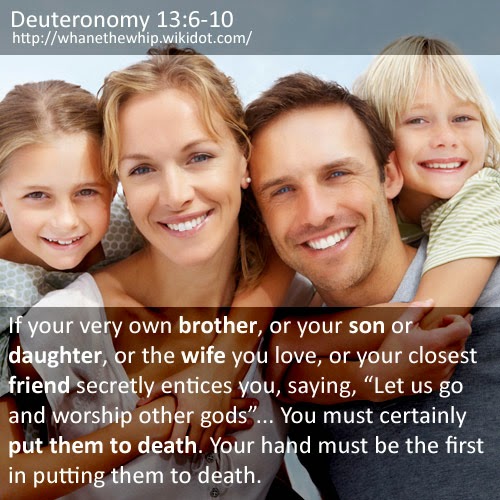

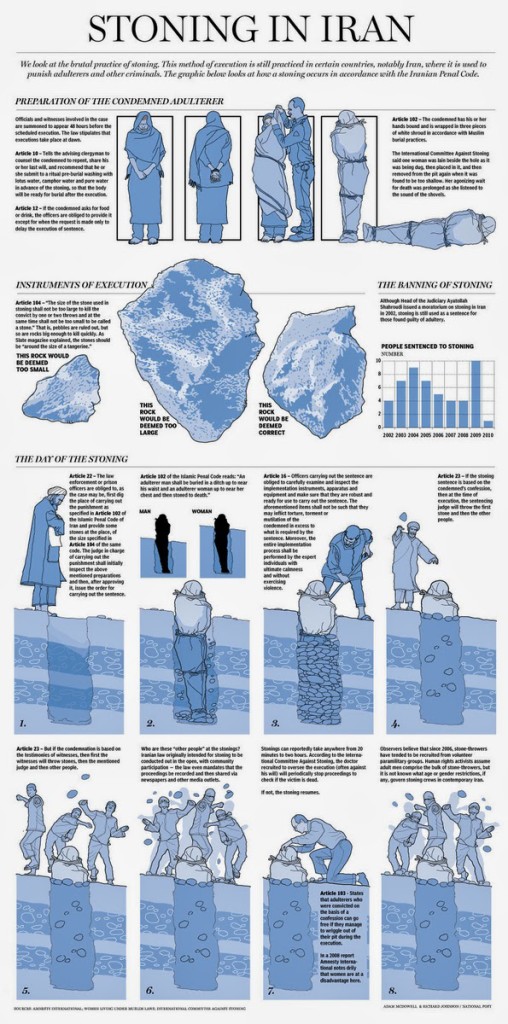

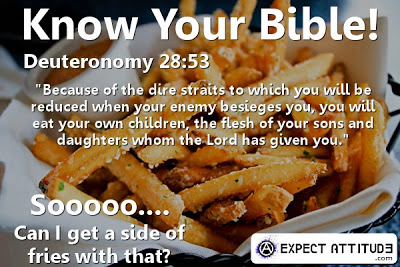
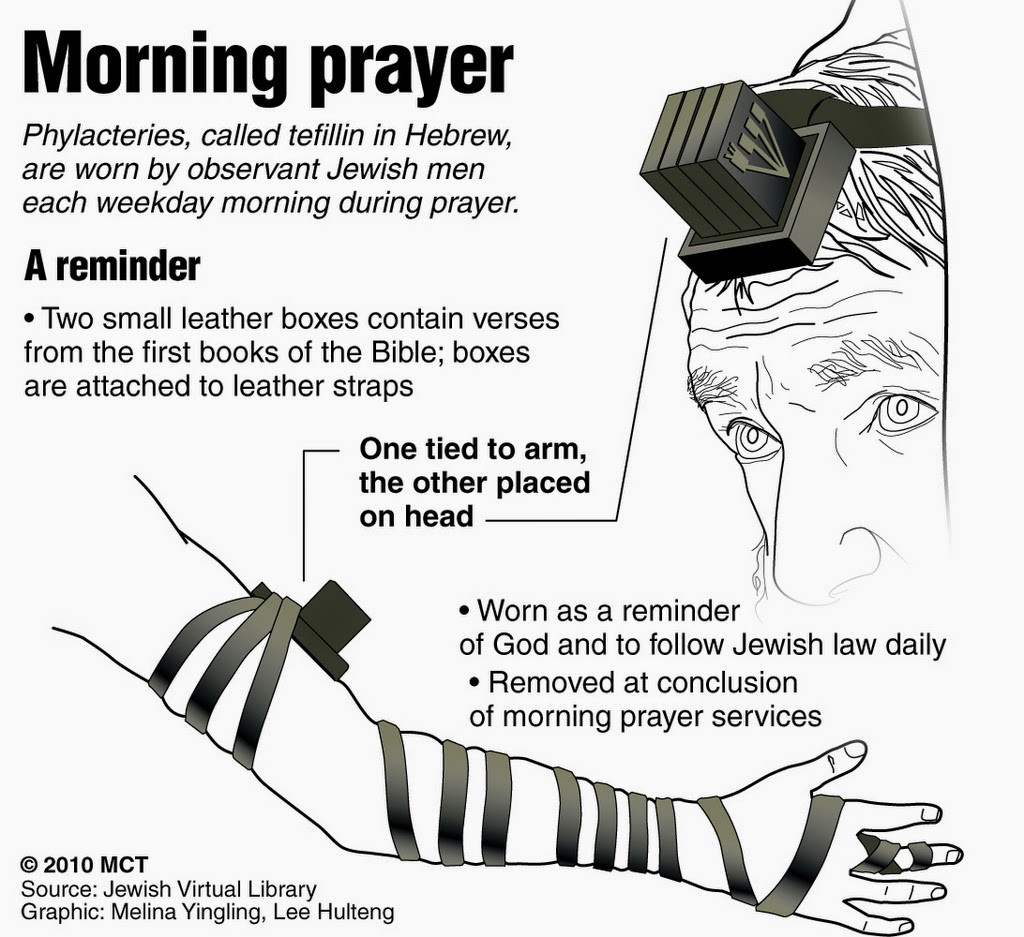






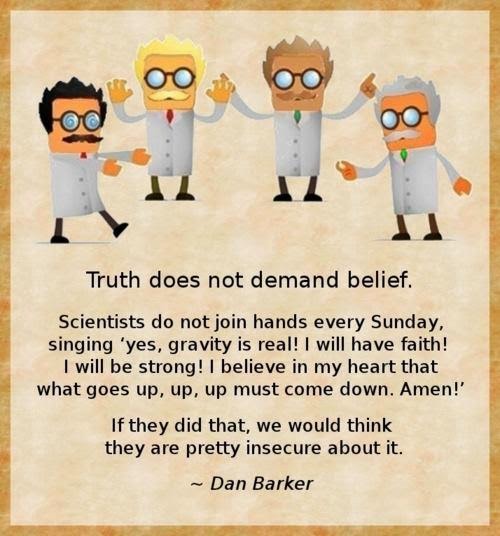
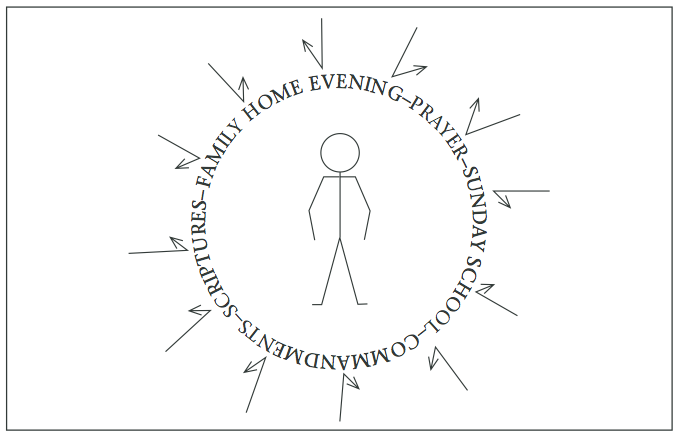

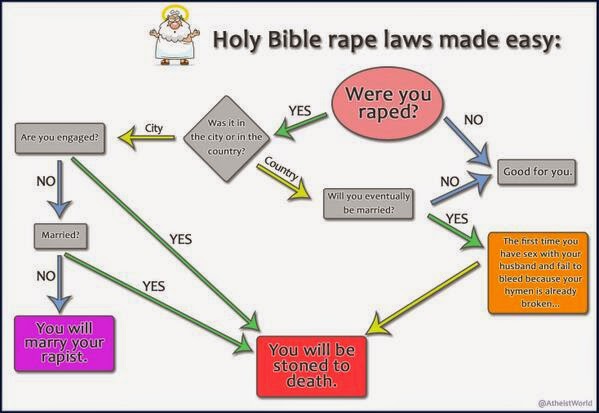

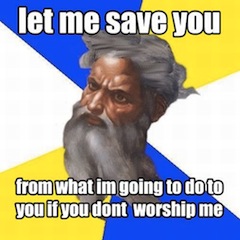
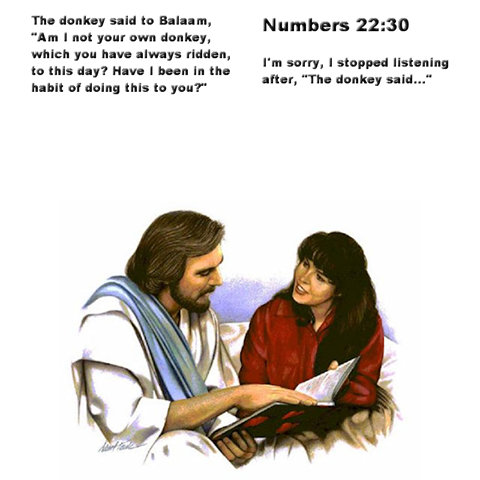

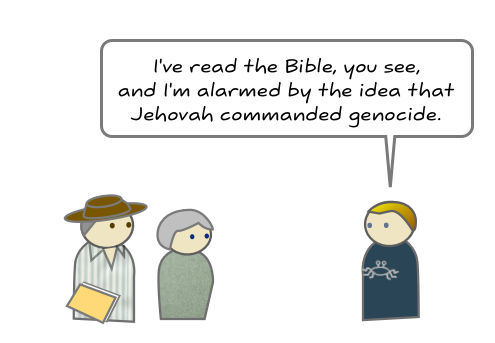

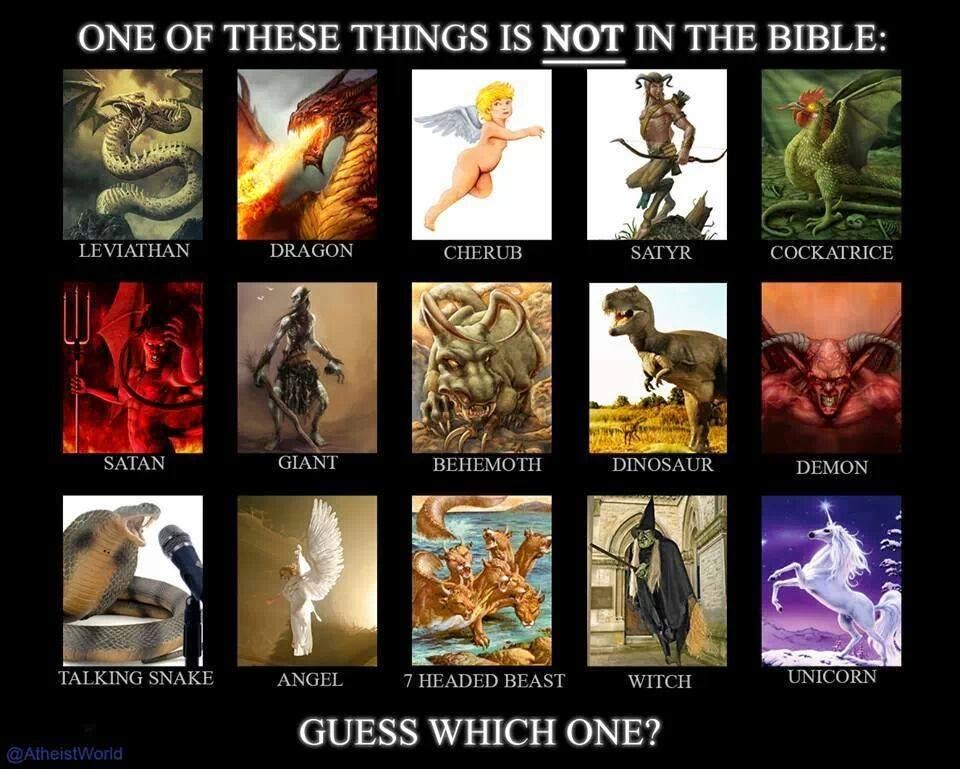


Recent Comments